
Presbyterian Church in Geneva, NY where Blackwell's graduation
was held, and was made the first female physician to earn
her medical degree in America. (Image: nlm.nih.gov)
Breaking Medicine's Glass Ceiling
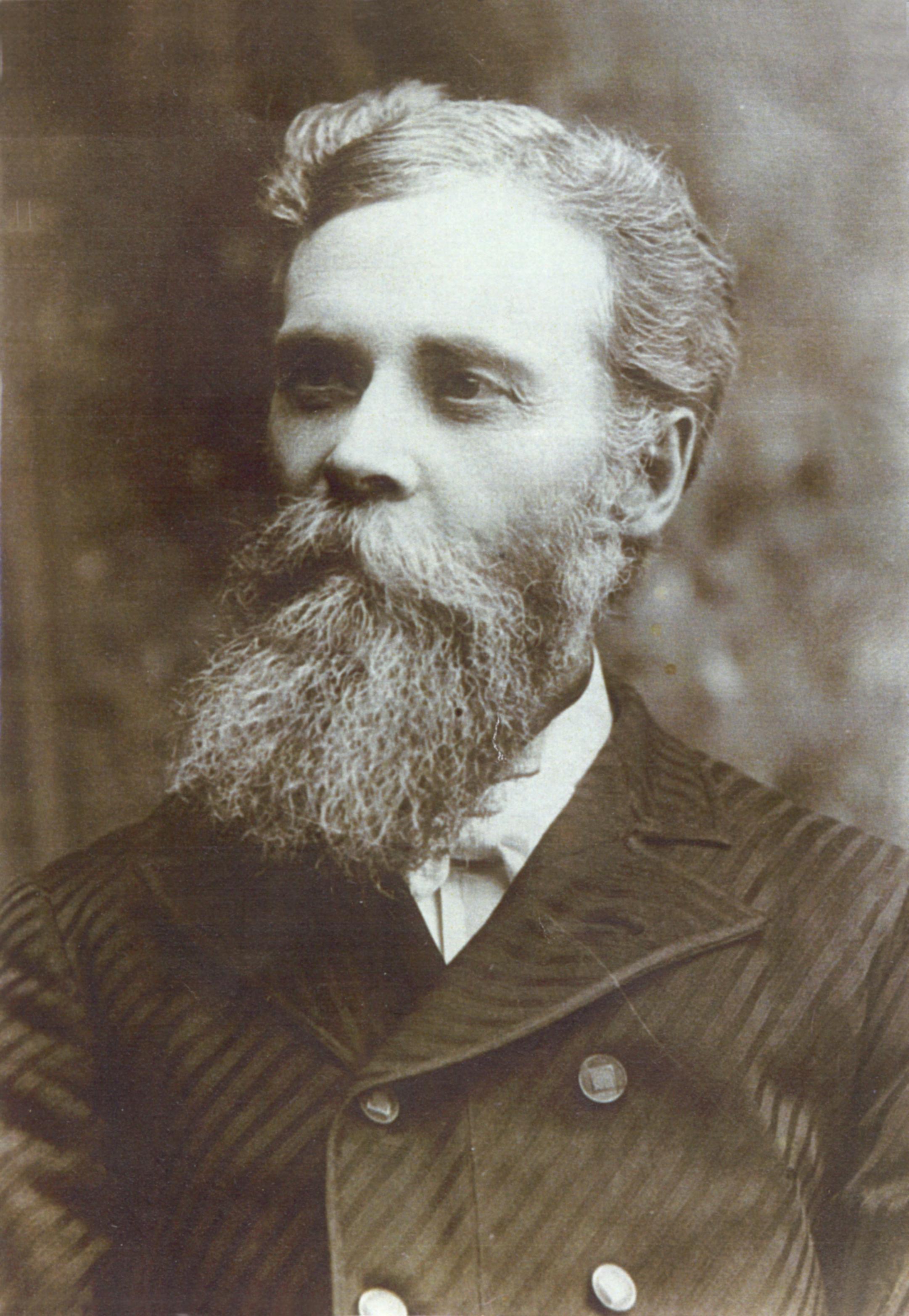
Dr. Joseph Warrington, who doubted Elizabeth's ability to be accepted into an American medical school because of her gender. (Image: findagrave.com)
New York’s medical environment, similar to that around the United States and Europe, was completely dominated by men. Upon her interest in becoming a doctor, Blackwell was met with two obstacles. She first must figure out where she would be able to attend college, and second, how she would fund her academic endeavors. Elizabeth’s first step to get into medical school was discussing this idea with one of the leading medical men in the city; Dr. Joseph Warrington.
Joseph Warrington’s general attitude towards Elizabeth’s plans was doubtful; he discouraged the idea of her taking up her medical study at an American school. He thought instead she could study abroad in Paris, the leading European medical center, if she disguised herself as a man. Warrington feared Elizabeth would be seen as the accompaniment of a man, rather than a professional equal. Faced with this situation, Blackwell applied to twelve rural schools.
"Elizabeth, it is of no use trying. Thee cannot gain admission to these schools. Thee must go to Paris and don masculine attire to gain the necessary knowledge."
~ Dr. Joseph Warrington
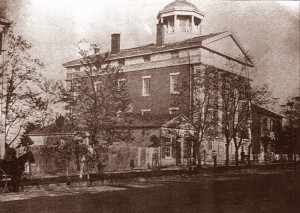
Geneva Medical College where Elizabeth dealt with segregation and discrimination. (Image: nlm.nih.gov)

Elizabeth's acceptance letter into Geneva Medical College
where she studied medicine for two years. (Image: nlm.nih.gov)
After being denied by all of the schools she had applied to, Blackwell was admitted to Geneva Medical College in rural New York, but her acceptance letter was intended as a practical joke. The Dean of Geneva Medical College asked 150 male medical students to vote on Elizabeth's acceptance and, because these students viewed it as a joke, they voted unanimously for her acceptance, and she was admitted to the school in August of 1847.

Presbyterian Church in Geneva, NY where Blackwell's graduation
was held, and was made the first female physician to earn
her medical degree in America. (Image: nlm.nih.gov)
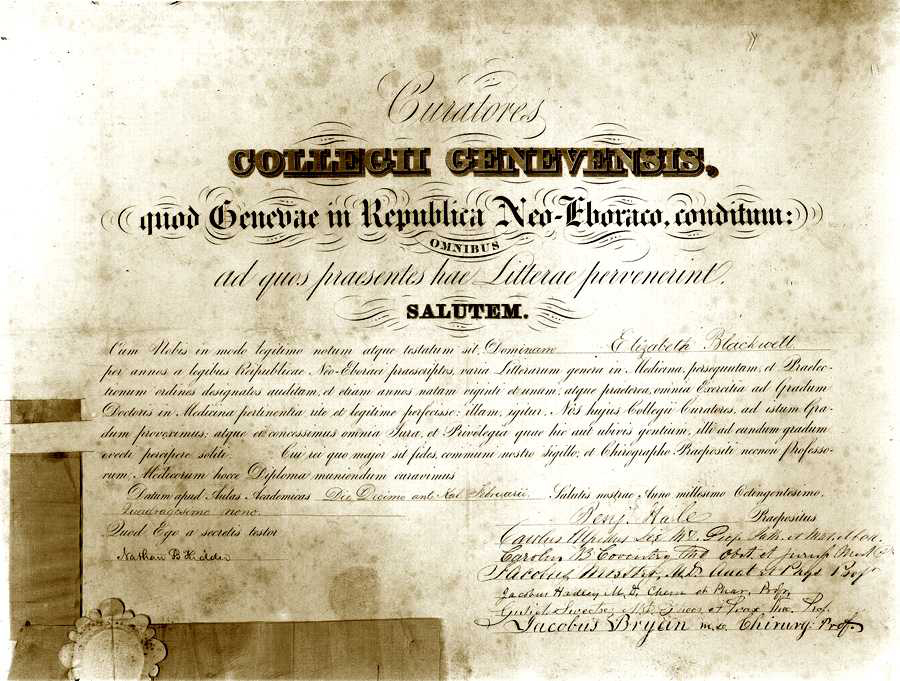
Elizabeth’s medical diploma from the Geneva Medical College,
forever cementing Blackwell in history by becoming the
first female physician to ever receive her M.D. (Image: nlm.nih.gov)
Her professors made her sit separately from the other students during lectures, excluded her from labs, and she was shunned by members of the community for being a “bad woman” and defying her “gender role.” Regardless of years of descrimination and hardship, Elizabeth graduated first in her class in 1849, and then continued her training at hospitals in London and Paris, while being regulated to midwifery or nursing.
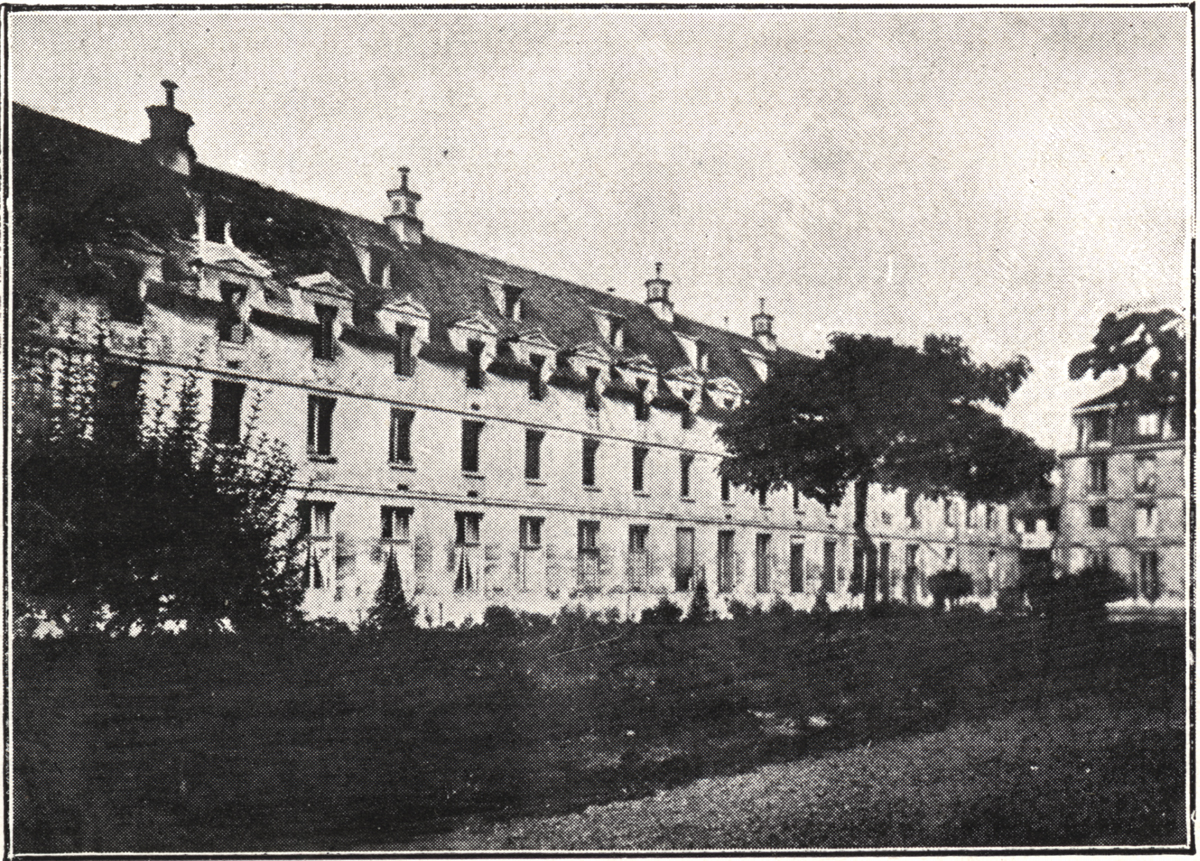
Paris Maternity Hospital where Blackwell went after graduating from college to continue her medical practices. (Image: nlm.nih.gov)
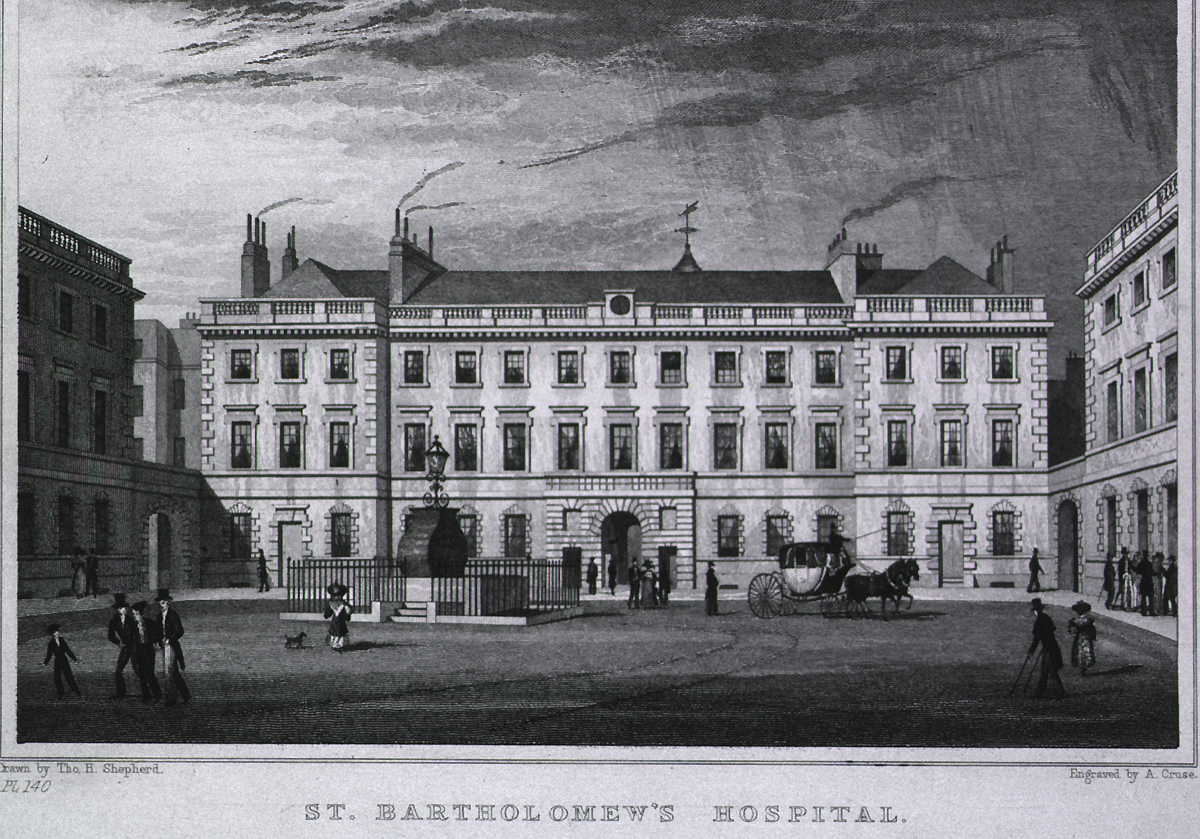
St. Bartholomew's Hospital in London, another place that Eilzabeth went to further her medical knowledge and experience. (Image: nlm.nih.gov)
"This event will stand forth hereafter as a memorable example of what women can undertake and accomplish, too."
~ Charles A. Lee